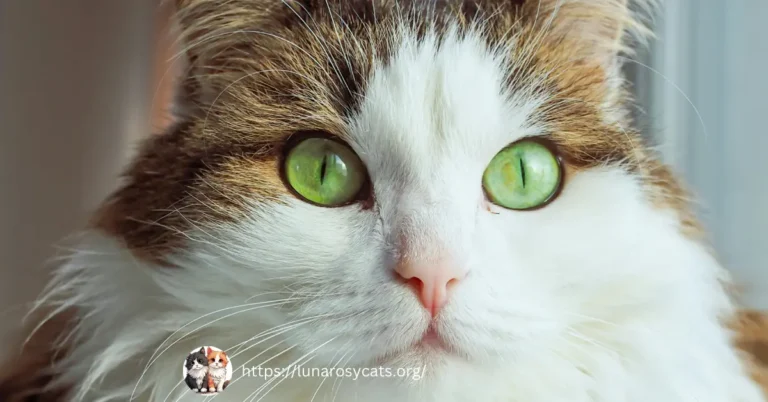how to find a good cat breeder ? ethical breeding!

Looking to find a cat breeder you can trust? Discover expert tips on identifying ethical breeders, understanding breeding practices, and ensuring you bring home a healthy, happy cat.
Choosing a responsible cat breeder is one of the most critical steps in adopting a new cat. Not all breeders follow ethical practices, which is why it’s essential to understand the signs of a trustworthy breeder who puts animal welfare first. This expert guide provides a step-by-step approach to finding a breeder committed to health, socialization, and ethical standards so you can bring home a well-adjusted, healthy pet.
1. Understanding Ethical Breeding: Why It Matters
Ethical breeding ensures cats are raised in environments that prioritize their physical and mental well-being. Unlike commercial or “backyard” breeding, ethical breeders invest time and resources into health screenings, proper socialization, and maintaining ideal breeding conditions.
- Health Focus: Ethical breeders screen for genetic issues to reduce the likelihood of inherited diseases.
- Behavioral Wellness: Through consistent socialization and exposure to human interaction, ethically bred cats are generally more adaptable and sociable.
2. Recognizing an Ethical Cat Breeder
1. Membership with Accredited Organizations
Memberships with organizations such as the Cat Fanciers’ Association (CFA) or The International Cat Association (TICA) can be an indicator of credibility, as these organizations set high standards for breeding practices.
- Why This Matters: Membership often means the breeder follows specific health and breeding standards, which helps avoid common genetic problems.
2. Comprehensive Health Screenings
Ethical breeders go beyond basic health checks and may test for breed-specific genetic disorders, such as hypertrophic cardiomyopathy (HCM) in breeds prone to this condition.
- Ask to See Health Certifications: Responsible breeders will have certifications showing the health of both parent cats. They should openly discuss any health issues the breed may be susceptible to.
3. Quality of the Breeding Facility
A good breeder will maintain a clean, spacious, and stimulating environment for their cats. Proper housing should include areas for exercise, socialization, and a stress-free atmosphere.
- Personal Visit: Visiting the breeder’s facility is essential to observe the cleanliness, space, and overall welfare of the cats. Cats should appear calm, healthy, and social.
4. Detailed Documentation and Transparency
An ethical breeder should provide detailed documentation on lineage, health records, and care instructions. They may also have a contract outlining health guarantees and terms for adoption.
- Written Health Contract: A good breeder often includes a health contract, promising the kitten is free from genetic health issues and sometimes offering to take the kitten back if health concerns arise shortly after adoption.
3. Questions to Ask a Cat Breeder
Engaging a breeder in conversation can reveal much about their practices. Here are expert-level questions to help ensure you’re choosing an ethical breeder:
- What health screenings do you perform on breeding cats?
- This shows if the breeder is proactive about genetic issues and aware of breed-specific health concerns.
- How often do you breed each cat?
- Overbreeding can harm a cat’s health. Ethical breeders limit breeding to ensure the mother’s well-being.
- What socialization practices do you follow with the kittens?
- Responsible breeders socialize kittens to various people and environments, ensuring they grow up to be adaptable and friendly.
- Can you provide references from previous buyers?
- A reputable breeder should be able to provide references, which can offer insight into the breeder’s track record and previous customers’ experiences.
4. Signs of Unethical Breeders to Avoid
- Limited Health Information: If a breeder can’t provide health records or avoids questions about health screenings, consider it a red flag.
- Reluctance for In-Person Visits: Ethical breeders will welcome a visit to show they have nothing to hide about their facilities.
- Overemphasis on Rare Traits: Breeders prioritizing “rare” traits over health or temperament might be placing profit above the cat’s well-being.
5. FAQs
- Q: How can I confirm a breeder’s credentials?
- A: Check their membership with reputable breeding organizations like the CFA or TICA. Additionally, ask for health certificates from recognized veterinary bodies.
- Q: What’s the difference between ethical breeding and backyard breeding?
- A: Ethical breeders focus on health, socialization, and overall well-being, while backyard breeders may prioritize quantity and profits, often neglecting proper care and health checks.
- Q: How can I prepare to bring a new cat home?
- A: Ethical breeders often provide a checklist and care instructions for new owners, covering diet, grooming, and socialization to ensure the cat settles comfortably.
Conclusion
Finding an ethical cat breeder requires time and careful research, but the effort is well worth it. By choosing a breeder who values health, transparency, and socialization, you’re setting the stage for a lifelong bond with a happy, healthy pet. Use this guide as a resource to ensure your future cat comes from an environment that truly cares for its well-being.


